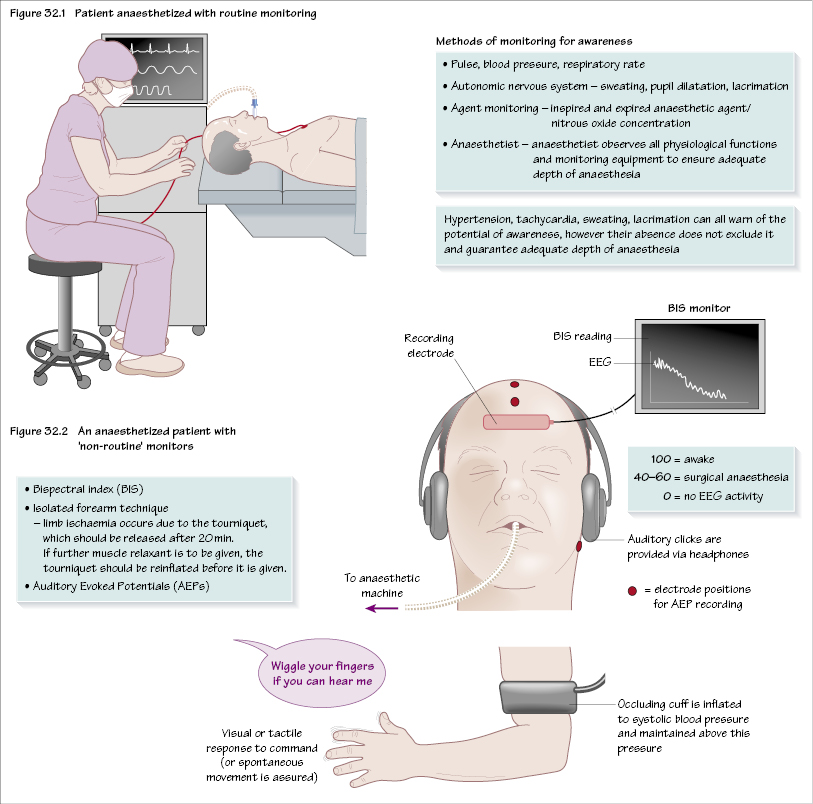32
Awareness

Awareness is an issue of major concern for both the anaesthetist and patient and is often brought up preoperatively as an area of anxiety by patients.
The most extreme form of awareness is the paralysed patient who experiences pain and is unable to alert anyone to their situation. This has been likened to torture, with a significant incidence of post-traumatic stress disorder. Thankfully this is very rare, in part due to:
- the reduced use of muscle relaxants – spontaneously breathing patients can still experience awareness but since they are not paralysed they are able to move, which will alert the anaesthetist to the problem;
- improvements in patient and anaesthetic monitoring;
- increased appreciation of awareness.
There are different types of awareness:
- Conscious awareness with spontaneous or prompted recall (explicit recall): in this type, specific events or conversations are recalled by the patient after the operation.
- Conscious awareness with amnesia: patients are able to respond to command during anaesthesia (e.g. to move a finger) but have no recollection afterwards.
- Dreaming: this might occur during anaesthesia and in the postoperative period.
- Unconscious awareness (implicit recall): events or suggestions might be recollected under hypnosis postoperatively as well as behaviour modification (e.g. instructions given to the patient during their anaesthetic, such as to touch their ear, might be replicated after hospital discharge when exposed to the appropriate stimulus).
The incidence of awareness has been reported to range between 0.2% and 1.6% in surgical patients. Of this group:
- 8% were in Caesarean sections;
- 45% were in emergency surgery (inadequate anaesthetic depth);
- 10% of patients who reported awareness experienced pain.
During life-saving emergency surgery, inadequate anaesthesia could potentially occur if the cardiovascular depressant effects of the anaesthetic impacted on the adequacy of coronary and cerebral perfusion pressure.
Anaesthesia is likely to affect the memory of awareness rather than the actual awareness itself.
Causes of awareness
Analysis of Medical Defence Union (UK) claims of awareness for a single year showed 70% of episodes were due to faulty technique and 20% were due to failure to check equipment. Only 2.5% of claims were due to equipment failure, unknown causes, spurious claims or justified risks (e.g. in critically ill patients).
Stay updated, free dental videos. Join our Telegram channel

VIDEdental - Online dental courses


